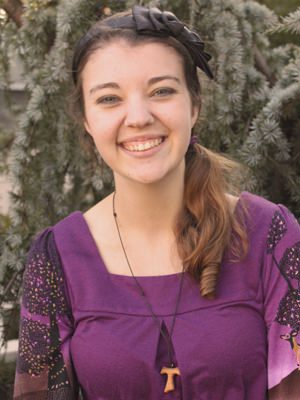Feria en Cochabamba de la Democracia Intercultural

Second year missioner Kitzi Hendricks shares photos from a recent Exposition Fair in which her service site, Instituto de Terapia e Investigación (ITEI), and its clients set up tents with information for the public.
ITEI is a human rights organization, and the clients participating in the fair had all been affected directly by torture during the dictatorships in Bolivia and are now part of group called the Plataforma de Combatientes por la Reconquista de la Democracia en Dictaduras. Below, Kitzi also gives a little history on the dictatorships that controlled Bolivia in the ’60s and ’70s.
Each year, the different departments of Cochabamba each rally together, in their respective places, to commemorate and celebrate democracy in Bolivia. This year, on October 10 in the Plaza de la “Libertad Marcelo Quiroga Santa Cruz”, the city of Cochabamba came together to remember the 31st anniversary of the country’s recuperation of democracy.
Here in Bolivia, Marcelo Quiroga Santa Cruz is revered by the people for his constant and unwavering fight for justice—more specifically justice and equality within the government. As a socialist political leader in Bolivia, he was frequently targeted and punished during the military regimes/dictatorships for his outspoken denunciations of human rights violations and massacres on the part of the government. During the regime of General Barrientos Ortuño, he was imprisoned for speaking out against a huge massacre in which numerous miners were murdered by the Military of Bolivia.
When the regime of Ortuño came to an end and the co-dictator Afredo Ovando took over, Quiroga was appointed an important Minister position and gained national celebrity status through his part in the controversial nationalization of a U.S. oil company as well as for forming the Socialist Party in Bolivia. However, as this regime was overthrown, Quiroga was exiled for the next eight years of the Hugo Banzer Suárez dictatorship. When he was finally able to return to Bolivia, he participated as a candidate in three consecutive presidential elections, and though he did not win, each year, he gained more and more notable recognition and became the most visible and popular representative for the Socialist Party.
As a member of Congress, he directed the effort to bring justice to Hugo Banzer Suárez through trial, accusing the dictator of numerous human rights violations and economic negligence. It is his final efforts against Hugo Banzer Suárez that most likely made him an even larger target during the coup led by General Luis Garcia Meza and ultimately led to his abduction and subsequent assassination. His body has never been found, nor those who killed him. His wife and sons are still searching for his body.
Marcelo Quiroga Santa Cruz may have passed on in 1980, but his legacy and his efforts are lived out through the many other people who have fought and continue to fight for democracy and the progress of Bolivia. I know because I have the honor of accompanying them each and every day as a part of my service work here in Cochabamba. They were exiled during times of political dictatorship. Their families were torn apart. Their stories tell of loss, abandonment, torture, and negligence.
Yet, they continue to fight and they continue to show their love for Bolivia and their unwavering hope for a government and a country that stands for the people. They are men and women who, regardless of the consequences, continue to fight because they believe in Bolivia and fight so that they may see the progress within their lifetimes.
For these luchadores, the many who have come before, and the many to come in the future, we celebrate. “¡Jallalla! ¡Jallalla Bolivia!”
Tagged in:
